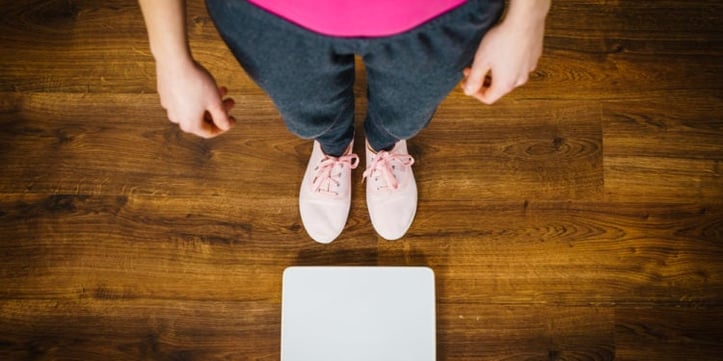Daily Weighing for Weight Control: What the Science Says & How to Do It Right

Daily Weighing for Weight Control: What the Science Says & How to Do It Right
If you’ve ever tried to manage your weight, you’ve likely wondered: Should I step on the scale every day? The answer isn’t black-and-white—but recent research offers surprising clarity. Let’s break down the evidence, debunk myths, and show you how to use daily weighing as a secret weapon for better habits.
What the Research Actually Shows
A 2020 study in the Journal of the American Medical Association (JAMA) followed 500 adults over 12 months, comparing daily weighers to those who weighed weekly. The results? Daily weighers lost 2.3kg more on average—but only if they paired the data with intentional behavior changes (like adjusting meals or upping activity when weight crept up). Another NIH-backed trial found that daily tracking reduced "mindless eating" by 40%, as participants became hyper-aware of how choices impacted their numbers.
However, the JAMA study also revealed a catch: 15% of daily weighers reported increased anxiety, especially when water retention or muscle gain caused temporary spikes. This aligns with ACE (American Council on Exercise) guidelines warning that unregulated daily weighing can backfire for those prone to body image struggles.
Why Daily Weighing Works (When Done Right)
Weight isn’t just a number—it’s feedback. Here’s how it drives better habits:
- Immediate Accountability: Seeing a 0.5kg uptick after a salty meal makes it easier to course-correct (e.g., hydrate more, choose a light dinner) instead of waiting a week to "check in."
- Pattern Recognition: Over time, you’ll notice how sleep (less than 7 hours = +0.3kg next morning), alcohol (a glass of wine = +0.2kg water retention), or strength training (muscle microtears = +0.4kg) affect your weight—helping you interpret "fluctuations" as normal, not failures.
- Behavior Reinforcement: Consistently seeing progress (even small, 0.1kg daily losses) releases dopamine, motivating you to stick with healthy habits.
The Critical Mistakes to Avoid
Not all daily weighing is created equal. Here’s how to avoid common pitfalls:
- Weigh at the Same Time Daily: Morning, post-bathroom, pre-breakfast—when your body is in a baseline state. Weighing at night (after eating/drinking) can show a 1-2kg swing that’s misleading.
- Track More Than Just Weight: Pair the scale with a journal noting: What did I eat? How much did I move? How was my sleep? This helps you connect actions to outcomes. For example, a 0.8kg gain after a high-sodium meal isn’t fat—it’s water.
- Focus on 7-Day Trends, Not Daily Spikes: A single day’s number can be 80% water, 20% actual fat/lean mass. Instead, average your weight over 7 days. If the trend is down, you’re on track—even if Day 3 was up.
Who Should Not Weigh Daily?
While most people can benefit, avoid daily weighing if:
- You have a history of disordered eating (NASM warns it may trigger obsessive behaviors).
- You’re a new strength trainer: Muscle growth can cause initial weight plateaus or gains, which may demotivate you if you’re not tracking body fat or measurements.
Your Action Plan: Turn the Scale Into a Coach
Ready to try it? Here’s a 1-week starter plan:
- Day 1: Set your scale to the same time (e.g., 7 AM) and log your first weight + notes on sleep/meals/exercise.
- Days 2-6: Repeat daily—don’t overanalyze individual numbers, just observe patterns (e.g., "After 6 hours of sleep, I’m +0.4kg").
- Day 7: Calculate your 7-day average. If it’s down, celebrate! If not, check your journal—did you skip workouts or eat out more? Adjust one habit (e.g., prep meals Sunday) and repeat next week.
Final Thoughts
Daily weighing isn’t magic—it’s a tool. When paired with self-awareness and flexibility, it turns vague goals ("lose weight") into actionable steps ("hydrate more after salty meals"). The key? See the scale as a coach, not a critic. Try it for 2 weeks, and we bet you’ll start noticing smarter choices automatically.
What’s your weighing routine? Share your tips below—let’s build a community that uses data to thrive!

Fit vs Fat: Decoding Health's True Ruler

Pump Up Your Heart: Science-Driven Weight Loss

Wellness Technology: Your Path to Sustainable Weight Loss

A Sensible Guide to Dietary New Year's Resolutions

Prevent Shoulder and Rotator Cuff Injuries with Corrective Exercises

Overcome Fitness Plateaus: 4 Tips for Success

10 x 10 Thanksgiving Day Circuit: A Fitness Guide

Unleash Your Fitness Potential with Kit Rich's Training Secrets

The Future of Fitness: A Guide for Beginners to Intermediates

